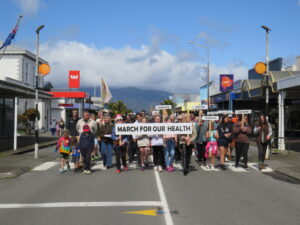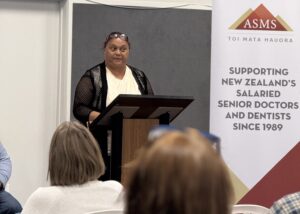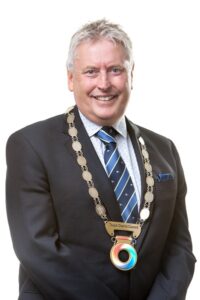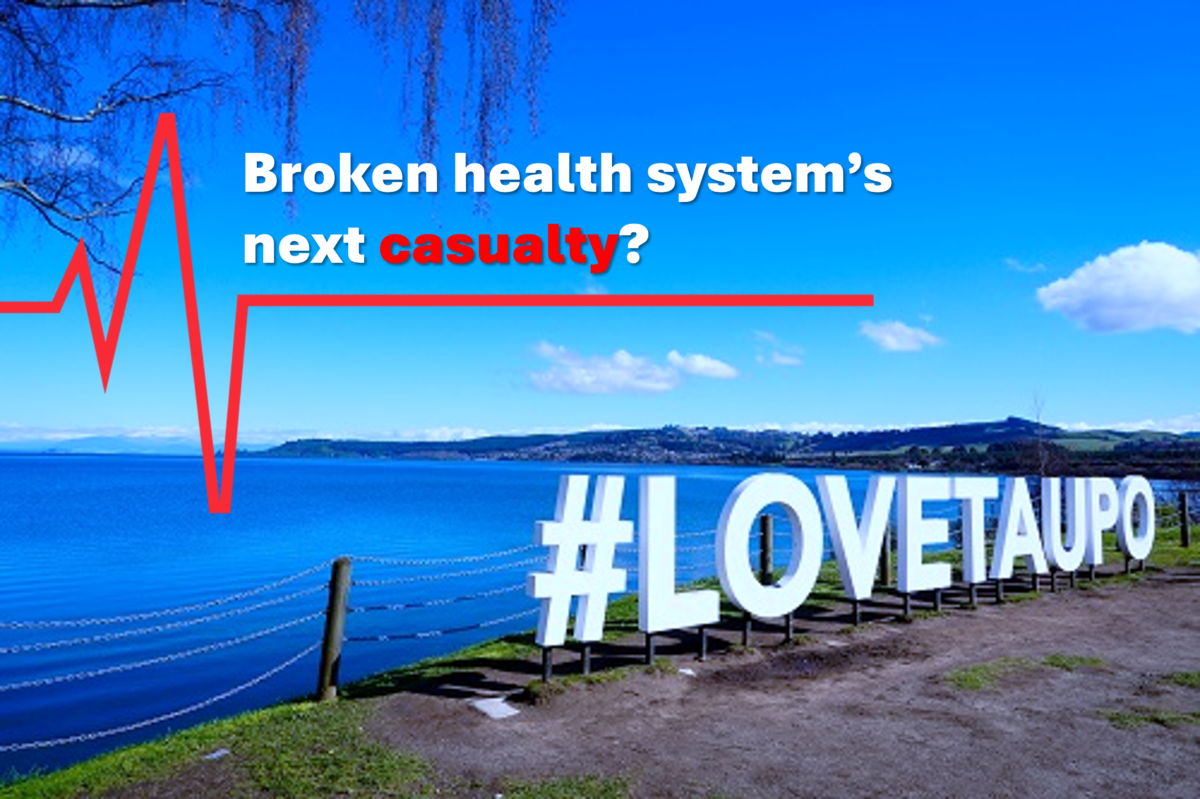
“We’ve been taking the Buller Declaration from the South to small towns and cities throughout the North Island and I’m shocked to hear what the community and health workers in Taupō have been telling me,” Mulholland told Kaitiaki.
“Taupō Hospital has gone from seven fulltime equivalent doctors down to under half that and the Government doesn’t appear to be replacing them or making it more attractive for doctors to want to work there.”
Already most patients who end up in Taupō Hospital are being transferred to Rotorua, Mullholland said.
“Some people tell me they aren’t making the 80km travel to Rotorua so they end up getting sicker.
“I have grave fears that Taupō will be the broken health system’s next victim or casualty and that the next closest city, Rotorua, will have to start picking up more of the pieces. The problem is that Rotorua already has major capacity issues at their hospital.
‘Sadly, Taupō is shaping up to be the Buller of the North and I urge the community and iwi to stand up and fight this or lose what little services, including emergency services, they have left at their hospital.’
“Sadly, Taupō is shaping up to be the Buller of the North and I urge the community and iwi to stand up and fight this or lose what little services, including emergency services, they have left at their hospital.”
Despite outcry from the West Coast community, Health New Zealand cut the after-hours emergency services at Buller Hospital and replaced it with a telehealth service, meaning many people would have to travel 100km to the nearest hospital in Greymouth if they wanted to see an emergency doctor in person.

NZNO delegate for Taupō Hospital Amy Edwards said the ED services were still operating.
“If we lose any more doctors then yes, what he [Mullholland] has said is likely to become a reality.
“But right now, everyone who comes to the ED is able to see a GP in person. Sometimes the telehealth service is used but only for those patients who don’t want to wait to see a doctor in person.”

Taupō Mayor David Trewavas said he had not been officially informed of any discussions around a reduction in the number of FTEs at Taupō Hospital.
With the population of the Taupō District steadily growing, it was essential that hospital services continued to be provided in the district and he would carry on consistently advocating for this, he said.
Nigel Chee, acting general manager for Tūwharetoa Iwi Māori Partnership Board, said their group was not aware of any pending changes at the hospital but would engage with Health New Zealand to better understand their intentions.
“It is clear from our health needs analysis that the people of Taupō/Turangi do not receive the services they require. Therefore, any deterioration of services will be investigated.

“The Tuwharetoa Iwi Māori Partnership Board continues to advocate for the Taupō/Turangi community to maintain timely access to quality health services,” Chee said.
Patient Voice has been on a roadshow to promote the Buller Declaration for about five weeks. They held a public meeting in Taupō last night, Mullholland said.
“A lot of the people in Taupō don’t appear to know what’s happening behind the scenes at their hospital. And that’s most probably intentional by this Government – no one can make a noise if they don’t know and the longer they make patients travel to Rotorua, the more normal it becomes,” he said.
Patient Voice held a public meeting in Rotorua last night where a number of residents expressed concern about their hospital not being able to properly care for locals, Mullholland said.
Kaitiaki asked Te Whatu Ora how many doctor FTEs had been lost at Taupō Hospital and we are still awaiting their response.


